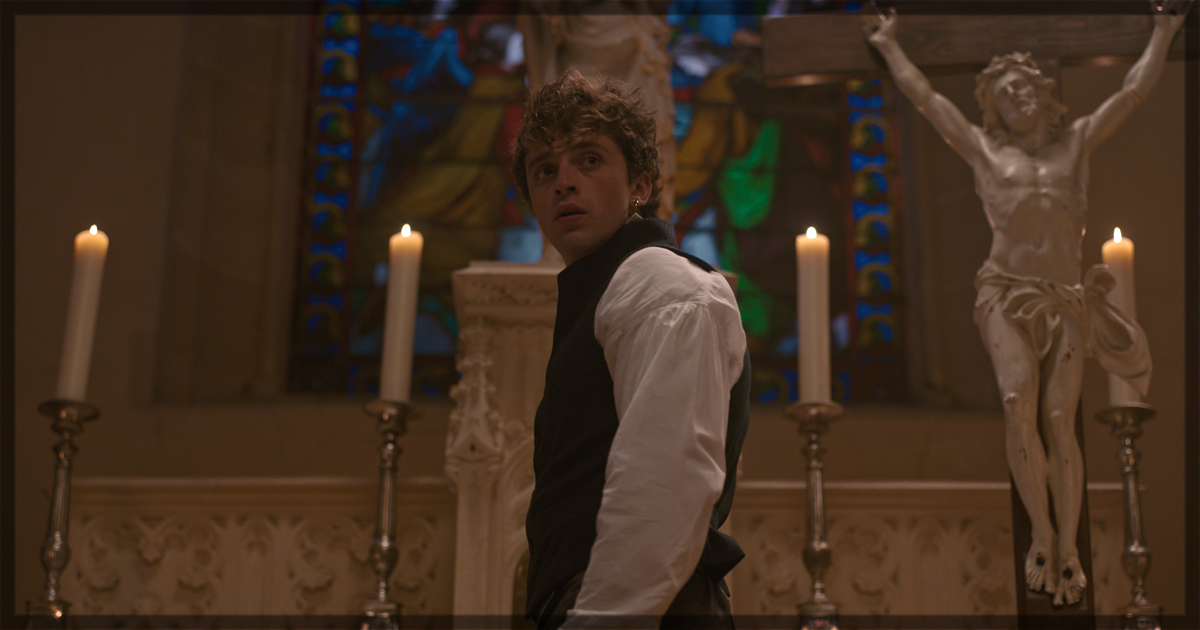After all the machinations of the previous episode it’s no wonder this course of Carême chooses a different focus for all its power struggles. The episode takes place entirely within Talleyrand’s (Jérémie Renier) estate and revolves around Hortense (Lily Taieb) unexpectedly going into labour. For those of you not keeping up, Hortense’s mother is Josephine (Maud Wyler, whose seeming fragility is put here to exceptional use). Hortense herself is married to her stepfather Napoleon Bonaparte’s dopey brother Louis (Arthur Mazet) and there is a question around the baby’s paternity known to Antonin (Benjamin Voisin, continuing to excel) thanks to his snooping.
But fortunately Talleyrand is married to Catherine (Sigrid Bouaziz), who reveals herself not only to be fluent in Tamil but also to have some employees who can almost certainly save Hortense’s life. (Catherine being raised in French India is a historical fact, though the failure to allow Nirupama Nityanandan as the midwife to speak any French almost certainly wouldn’t have been. It’s an unpleasant mistake, especially considering how well the issues of race have generally been handled until now.) Things are so tense Josephine and Talleyrand both forget themselves and trade some vicious insults in front of the Pope (Olivier Rabourdin), the actual, genuine Pope in town for the coronation, and whose reaction to the explosive argument is a sly “Oh I just adore the theatre.”
But when has everything gone smoothly on this show? Firstly there’s Antonin and his appetite for women, with Agathe (Alice da Luz) taking a very modern opinion of all the things they’re getting up to while his girlfriend Henriette (Lyna Khoudri) is on the run. And secondly there’s a piece of personal paperwork that Antonin rediscovers, which could mean some unpleasant things about his past and future both.
The cooking in this episode is limited to an early spread for the Pope, which he immediately insults in front of Antonin as being too decadent, and Antonin later whipping up some painkillers for Hortense. The ways in which Josephine and Catherine, who loathe each other, come to an accord as they join forces against the useless male doctors to try to save Hortense and the baby is subtle, clever, very realistic work. It’s a man’s world, as the finale reminds us, but the queen is always the most powerful player on the chessboard. Or that’s what these women think, at least.
What has made Carême so overall satisfying is the focus on work it has brought to its (broadly accurate) historical power struggles. The less well-known, behind-the-scenes corner of history provides more wiggle room for drama instead of the usual bewigged re-enactment. Characters like Henriette and Agathe, and to a lesser extent the rest of the kitchen staff, have given us a picture of France that the history books do not always bother to paint. How the work gets done behind the scenes is more relevant in today’s world than regal power struggles. We’ve all had a boss we’d sometimes happily strangle, haven’t we. And when Antonin does make his confession to the Pope, the Pope’s directness in indirectly telling Antonin how to solve a few of his problems is a masterclass in plausible deniability. The Antonin of the first episode would never have been so quick to grasp what’s happening, so our cutie hero has grown, and certainly learned the lessons of his early mistakes. The question is, when the whole eyes of the nation will be watching the coronation, he’ll be able to do anything about it.
Carême is now streaming on Apple TV+.
Learn more about the show, including how to watch, on the official site for the title.


